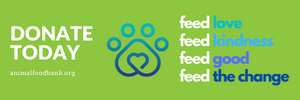
Common puppy parent concerns
Being a new dog mom or dad is so exciting, but it comes with plenty of responsibility. Whether or not you’ve owned a dog before, you will likely have plenty of questions when it comes to your new puppy. Its normal to heavily research and ask your vet a million questions because you want the best for your pup! In this blog, we will dive into the most common puppy parent concerns and ways to address them.
1. Beware when letting your puppy play other dogs
Keep your puppy away until he or she has gotten their shots at about 12 weeks. This can help your pup avoid possible exposure to various serious and life-threatening diseases such as Parvo, distemper, adenovirus and rabies.
2. Socialize your pup as much as you can
There’s a whole world beyond your house and backyard for your puppy to explore. While keeping tip number-1 in mind, socialize your dog with your friends’ or family’s pups (just make sure they have their vaccines). Socialization isn’t only fun for your puppy but also gets them more comfortable in a wider variety of situations preventing anxiety or aggression later on. The phrase “a tired pup is a happy pup” is true – keep your pup happy and tired with lots of socialization!
3. Expose your pup to the amazing world around them
This is the time when their brains create a photo album of memories and associations. The more photos and positive experiences you can put into that album, the better. Expose your pup to other dogs, children, and domestic animals. You should also handle your pup in different ways and let them play with a variety of toys. Let your pup learn about different places, sounds, and adventures and try and make it a paw-sitive experience wherever they go.
4. Train your puppy to associate you with treats
Humans rely on sight to make sense of their surroundings, but our dogs’ use their adorable noses! Dogs can smell 20-times better than humans, and so they rely heavily on it to make sense of their environment. That’s why rewarding dogs with strongly scented treats while training works so well!
This is why they’re essential for the right technique for beginning leash training and recall response with your puppy.
5. Start leash training and recall training early
You can start leash-training your puppy as young as 2 months old. To get your puppy to form positive response to the leash and harness or collar, begin by showing your pup the leash and collar, then rewarding him with a tasty treat. After a few days of this, beginning putting the collar and leash on him and providing a treat and positive praise. Eventually, you can take a few steps away and call your puppy’s name. When he comes to receive the treat, let him have it and praise him. As he gets older, he is less likely to pull if training begins young. If he does pull, stop him from walking, call his name, and wait for him to come to you. Treat him, then begin walking again.
6. Get them used to you touching their paws
Aren’t your pup’s paws cute? We recommend you spend some time playing with those petite toes and massaging their paws. This may sound funny, but this is essential if you have young children in the house. Dogs can be very sensitive about their paws if they’re not used to being handled. This will also come in handy when it’s time to clip their nails!
7. Take your puppy on car rides
Dogs, like children, might go through a stage of motion sickness the first few times they ride in the car, but starting them early minimizes the possibility of them developing a fear car rides later on in life. Your pup will also be happy to have the whole pack packed into the car together and take in all the new smells!
8. Never leave your puppy in a vehicle unattended
Within 30 minutes, 20-degrees Celsius outside can turn into 40-degrees. When it’s that warm outside, the temperature inside the car could reach upwards of 78-degrees Celsius! As the temperature rises, dogs will try to cool off by panting, and their anxiety level will likely also rise due to their discomfort. After all, imagine wearing a furry coat in a small, 78-degree room, not knowing where your family is.
Let’s just say, if you leave your dog in the car and someone breaks your window, please thank them! While hotdogs may be tasty, hot dogs can be fatal. This should be on the top common puppy parent concerns list.
9. Reduce biting and nibbles through pup-like play and responses
Puppies have surprisingly sharp teeth! To discourage your puppy’s biting and nipping habit during play, you need to think and play like one of his siblings. If your puppy gets too rough, you should respond with a high-pitched cry and stop playing. This is no fun for your puppy, which conditions him to play more gently. If your puppy is teething, provide plenty of chew toys to encourage appropriate chewing.
10. Crate training reduces headaches
Make your puppy’s crate a fun, safe place. Doug recommends getting a plastic crate instead of a wire one and putting a nice blanket or pillow on the bottom of the crate. Tie the door open so they can freely go in and out without the fear of being locked up. Remember, a crate is not a prison, and you shouldn’t punish your puppy by locking him in there. A crate is meant to mimic a den where your dog can relax with a little puppy privacy.
To begin, put your puppy’s food in the crate and let them eat in there. Throw in treats and toys and encourage them to retrieve them. Eventually, your dog will go into their crate and take a nap. Making their crate a safe relaxing zone will really help alleviate any additional stress if you need to travel with your pet!
11. Make sure your puppy has fun in the sun and access to drinking water.
Your puppy needs fresh air and some vitamin D. However, unlike humans, dogs do not make vitamin D in their skin. When UVB rays strike their fur and activate oils to produce vitamin D.
Keep in mind with the excitement of the new world around them, sometimes puppies don’t know when it’s time to take a break. It’s important to keep an eye on your pup and ensure they are getting some fun in the sun with regular water breaks.
12. Obedience train your dog at 6 months.
Young puppies have short attention spans, but you can expect them to begin to learn simple obedience commands such as “sit,” “down,” and “stay.” After six months, your puppy can absorb more information and start to understand the importance of basic manners. Whether it’s on your own, or with a professional trainer, understanding your pup’s body language is a huge part of connecting and training your new family member.
13. Create and stick to a potty and feeding routine!
Dog thrive when they have a schedule to follow. This can reduce separation anxiety and unwanted behaviours. That’s why we saved the best for last. Experienced dog owners know that this may be the most relatable and important tip, yet.
Accidents are bound to happen, but creating a routine that your puppy can get used to will greatly minimize accidents in the house. The hard part is sticking to it, so make sure to work out a plan that your whole family can get on board with.
14. Feed your puppy 3 – 4x per day.
Your puppy will grow fast over the next few months. So make sure she or she gets lots of nutrients! Vets recommend keeping a consistent schedule (this will help with potty training, see tip 13) and feeding your puppy up to four times a day until they reach five months old. After that, switch over to a breakfast and dinner routine.
The most important things to remember when bringing home your new best friend is to enjoy the moments when your pup is small and learning. At times it may be tough, but your love for your new puppy will be returned with licks and loyalty, and unforgettable memories. And of course, these outweigh a few accidents here and there and those surprising puppy nibbles!
NOTE: Always contact your vet for any questions or concerns regarding your animals. Their opinion matters most! We hope this list of common puppy parent concerns helps you find your way on this exciting new journey!






